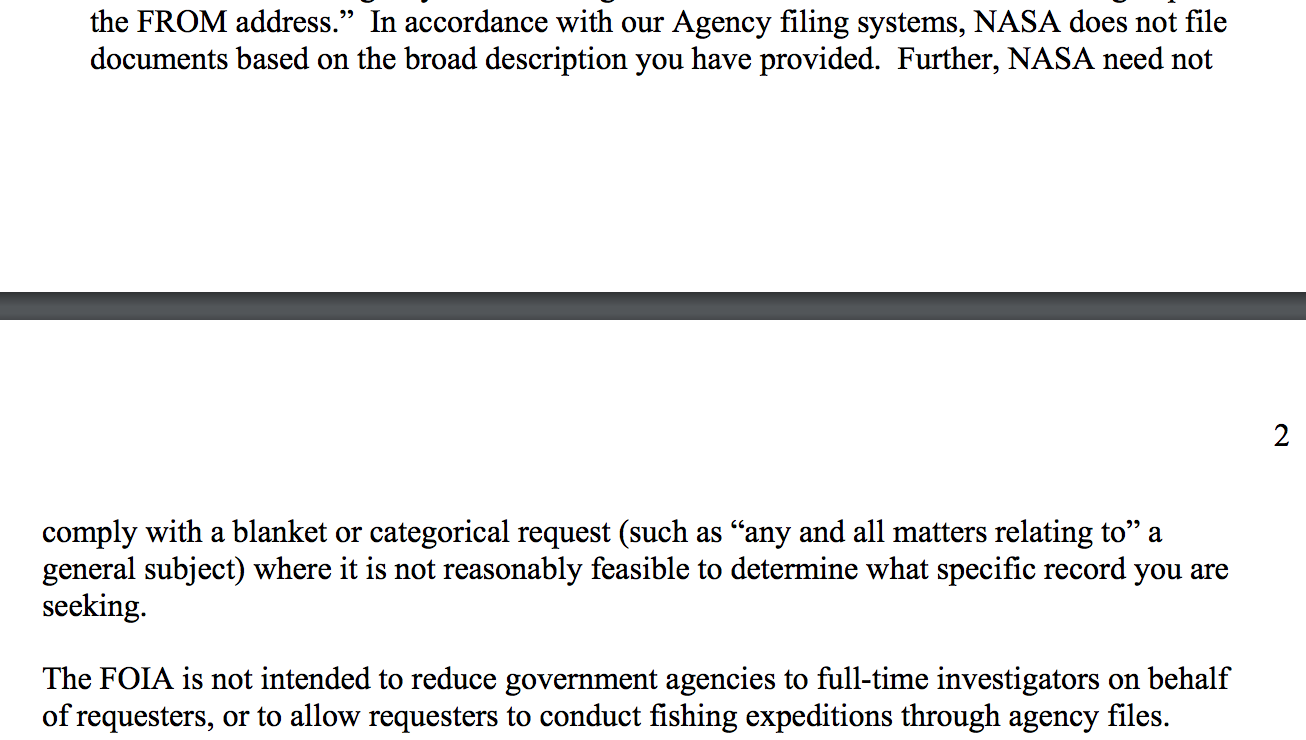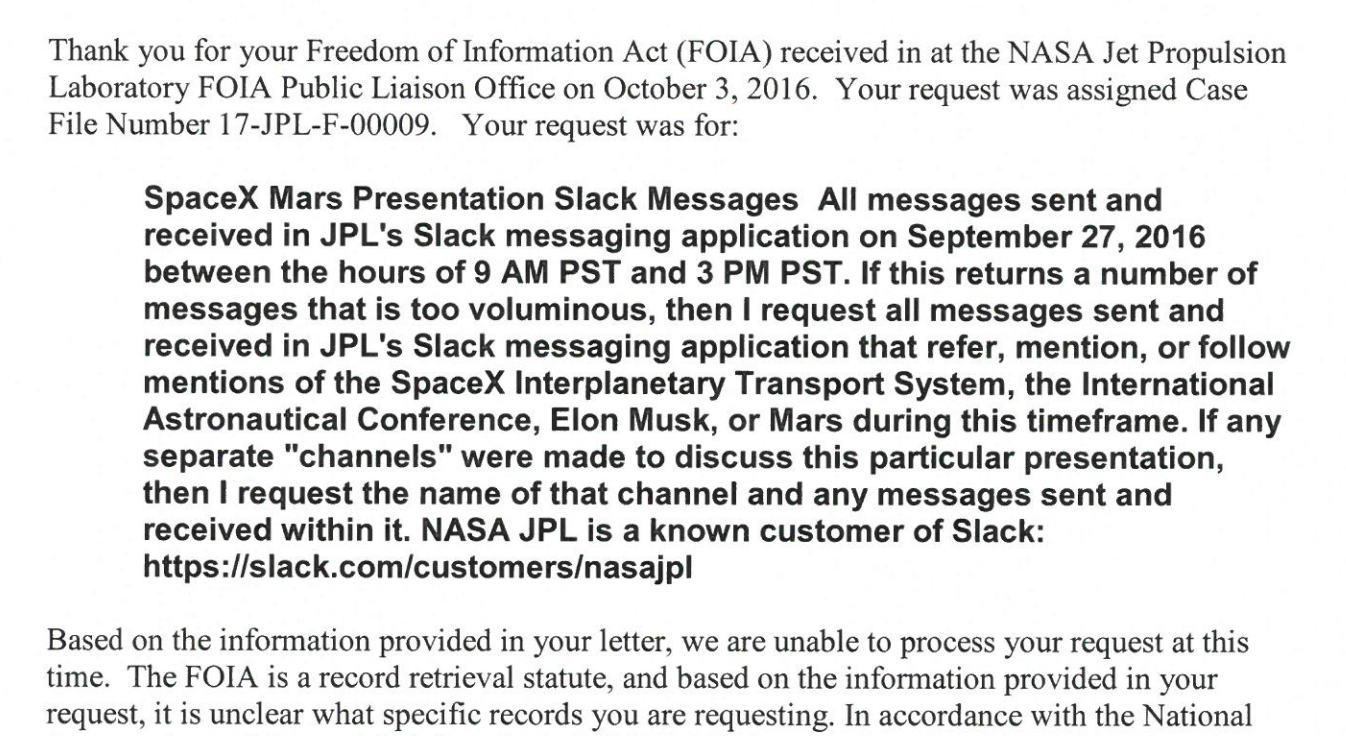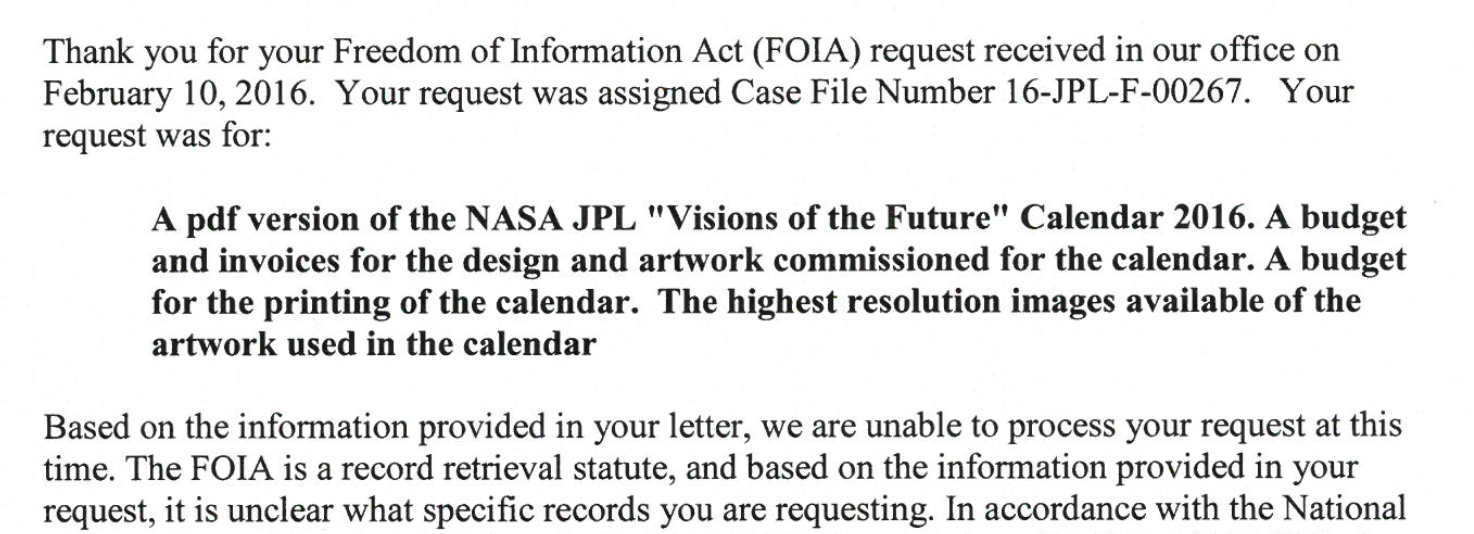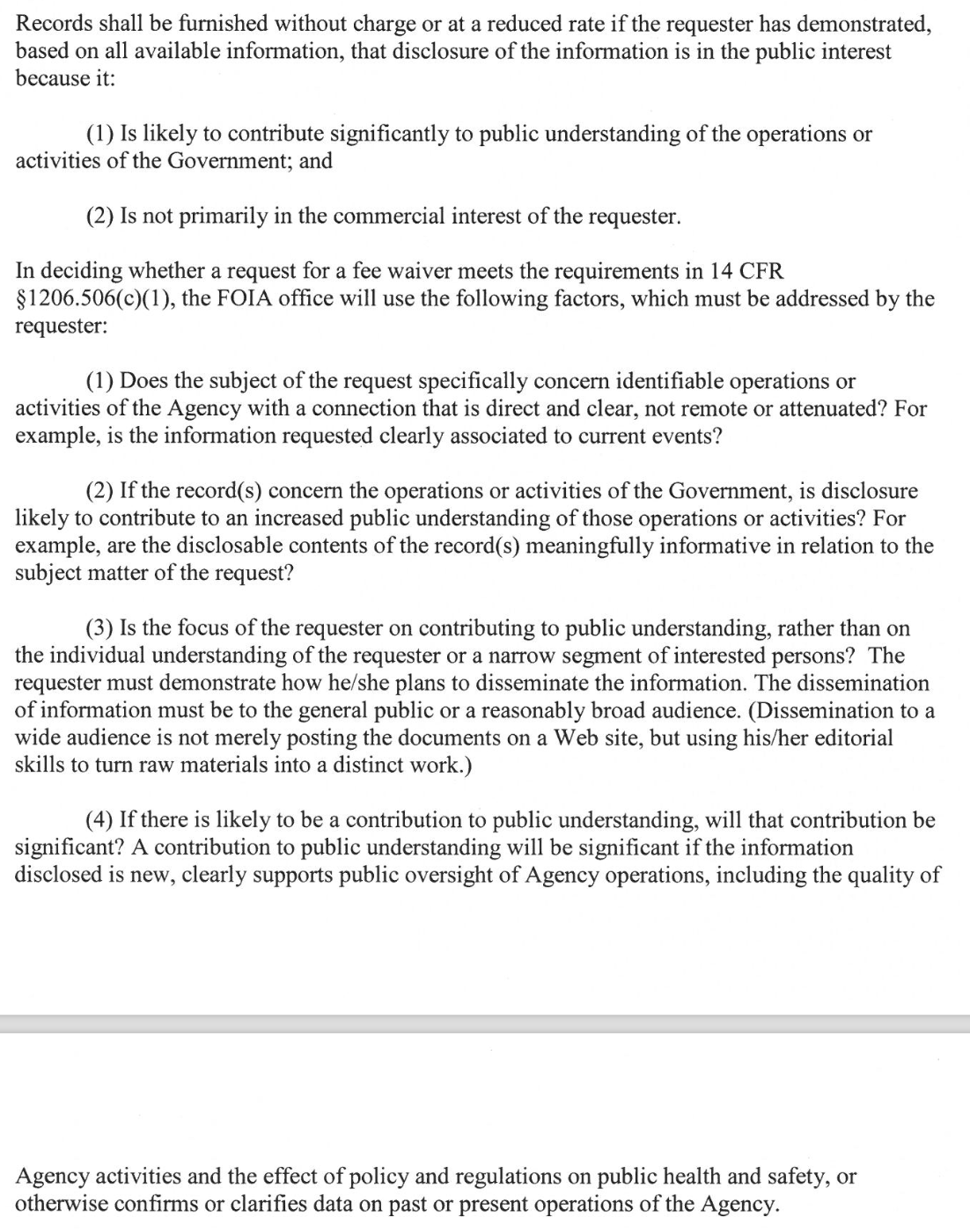Getting NASA to Comply With Simple FOIA Requests Is a Nightmare
Credit to Author: Joseph Cox| Date: Tue, 22 Aug 2017 14:00:00 +0000
Trying to effectively use the Freedom of Information Act can be hell. Maybe a police department will demand a ridiculous and seemingly arbitrary fee to collect records, or perhaps an agency simply won’t respond to requests.
Judging by Motherboard’s own requests as well as those from Freedom of Information organizations, one government body in particular stands out for turning FOIA requests into a nightmare: NASA.
Freedom of Information Act requests are used by journalists, private citizens, and government watchdogs to acquire public documents from government agencies. FOIA.gov puts it simply: “FOIA is a law that gives you the right to access information from the federal government. It is often described as the law that keeps citizens in the know about their government.”
FOIAing NASA, however, can be an exercise in futility. In one recent case, Motherboard requested all emails from a specific NASA email address with a specific subject line (Motherboard is not publishing this particular request because we are still pursuing these documents). Other government agencies have completed similar requests with no problems.
NASA, however, said it was “unclear what specific NASA records you are requesting.” Possibly the only way to be more specific is to knock on NASA’s door and show them a printout of what an email is.
JPat Brown, executive editor of public records platform MuckRock, explained similarly frustrating experiences with NASA.
“Even in cases where we’ve requested specific contracts by name and number, NASA has claimed that our request was too broad, and added insult to injury with a form letter rejection that includes the sentence ‘we are not required to hunt for needles in bureaucratic haystacks,'” Brown told Motherboard in an email.
Brown added that NASA has refused to process records unless presented with a requester’s home address, something that is not included in the relevant code; and makes it more difficult for requests to obtain ‘media’ status. With this, requesters can get a fee reduction.

In another instance, NASA closed a Motherboard FOIA request for failing “to provide sufficient details or information” to complete the request; in this case, the request was for emails sent to or received by specific “Capstone” employees regarding the Trump administration transition during a short timeframe between the election and Trump’s inauguration. This same request was sent to and completed by numerous other agencies.
In yet another case, NASA’s Jet Propulsion Lab refused to search its employees’ Slack app for messages sent pertaining to the announcement of SpaceX’s Mars plan, even though the request was for specific messages sent in a specific Slack channel at a specific time on a specific date about a specific topic:

JPL said this request was similarly “unclear [on] what specific NASA records you are requesting.”
In early 2016, Motherboard requested design artwork for NASA JPL’s “Visions of the Future” calendar; JPL said NASA “is not equipped or required to conduct a search for “budget and invoices for the design and artwork commissioned for for the calendar.” In that case, NASA also asked Motherboard’s requester to prove they were a journalist, using a four-part test consisting of multiple questions each.


All of these aren’t just excuses for a good moan. Arguably, NASA is failing to deliver on its obligations to fulfill proper Freedom of Information Act requests, meaning the public may be missing out on information that is important to understanding the organization and how it functions, and how it spends taxpayer funds. It is worth mentioning that Motherboard has regularly worked with one specific office—NASA’s Office of Inspector General—with few problems. That office regularly and quickly responds to Motherboard’s FOIA requests.
Bob Jacobs, a spokesperson for NASA, told Motherboard in an email, “NASA believes it fairly disposes of FOIA requests and follows the Code of Federal Regulations regarding such public inquiries.” He encouraged journalists to appeal decisions if they felt their request was not handled properly.